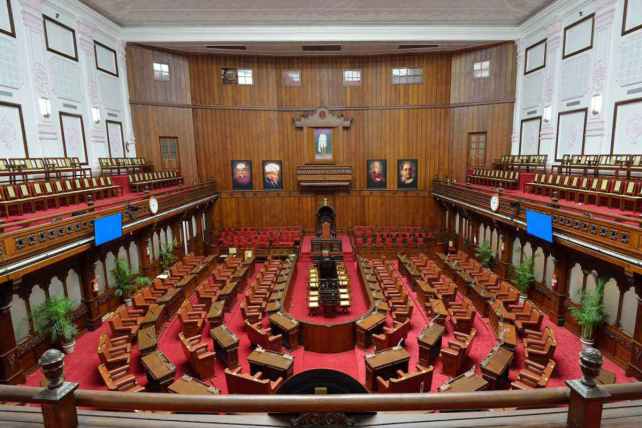Legislative Councils:
- The legislative council is permanent body but 1/3rd of its member retire every 2 years. The members of the council elect a chairman which is called “presiding officer”. The council also elects the Deputy chairman.
- Total Number of the Legislative Council should not exceed the 1/3rd of the total number of members of the Legislative assembly, but it should not be less than 40 (Article 171).
- Jammu & Kashmir is an exception to this where the upper house has strength of 36 only. This is because; J & K assembly is created as per the J & K constitution and Part VI is not applicable to Jammu & Kashmir.

Details:
- There are only seven such Councils across the country in the states of Andhra Pradesh, Bihar, Jammu and Kashmir, Karnataka, Maharashtra, Telangana, and Uttar Pradesh.
- Section 168 of the Indian constitution speaks about the Constitution of Legislatures in States and Article 169 speaks about “Abolition or creation of Legislative Councils in states”.
- Indian Constitution does not adhere to the principle of bicameralism in case of every legislature. Whether there should be a legislative council in the state or not, is decided by legislative assembly of the state itself.
- But it does not mean that legislative assembly can itself create a legislative council. The constitution of India has full provisions about the creation of legislative council and its abolishment.
- The power of abolition and creation of the State legislative council is vested in Parliament of India as per article 169. But, to create or to abolish a state legislative council, the state legislative assembly must pass a resolution, which must be supported by majority of the strength of the house and 2/3rd majority of the present and voting (Absolute + Special Majority).
- The resolution to create and abolish a state legislative council is to be assented by the President also.
- Though when a legislative council is created or abolished, the Constitution of India is also changed, it is not considered as a Constitution Amendment Bill.
Is there a need for Legislative Council in all the States?
The framers of the constitution as well as members of the Constituent assembly had in mind that it may not be possible for all the states to support two houses, financially as well as for other reasons. For instance, some of the members of the Constituent assembly criticized the idea of bicameral legislature in the states as a superfluous idea and a body which is unrepresentative of the population, a burden on the state budget and causing delays in passing legislation. That is why, it was left for the legislatives of the state assembly to decide whether or not there should be a legislative council in the state.
Arguments in favour of Legislative Councils in every state:
- An Upper House provides a forum for academicians and intellectuals, who are arguably not suited for the rough and tumble of electoral politics.
- It provides a mechanism for a more sober and considered appraisal of legislation that a State may pass.
- Legislative Councils make the governments more accountable.
- The members of Legislative Council through their experience can act as the friend, philosopher and guide of the Legislative Assembly.
Arguments against Legislative Councils in every state:
- The absence of Legislative council in every state itself suggests the lack of any real advantage, apart from the absence of a broad political consensus on the issue.
- The process of creating an Upper House is lengthy. Two Bills introduced in the Rajya Sabha in 2013 for establishing Legislative Councils in Assam and Rajasthan are still pending, indicating the lack of support for such a move.
- Rather than fulfilling the lofty objective of getting intellectuals into the legislature, the forum is likely to be used to accommodate party functionaries who fail to get elected.
- It is also an unnecessary drain on the exchequer.
- Another issue is that graduates are no longer a rare breed; also, with dipping educational standards, a graduate degree is no guarantee of any real intellectual heft.
Way Forward:
- There has to be a national policy on having an Upper House in State legislatures to be framed by the Union government, so that a subsequent government doesn’t abolish it. There has to be a uniformity and strong policy for its creation, revival and abolishment.
- The provision in the law for Councils to have seats for graduates and teachers needs to be reviewed.
- A national consensus must be evolved on the establishment of Legislative Councils.